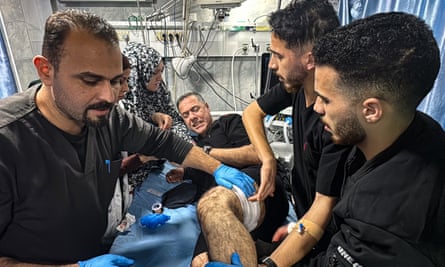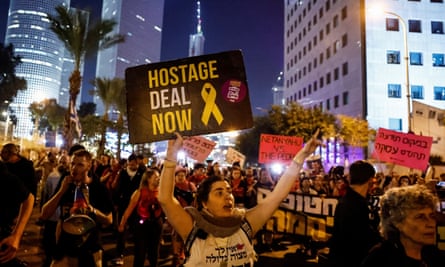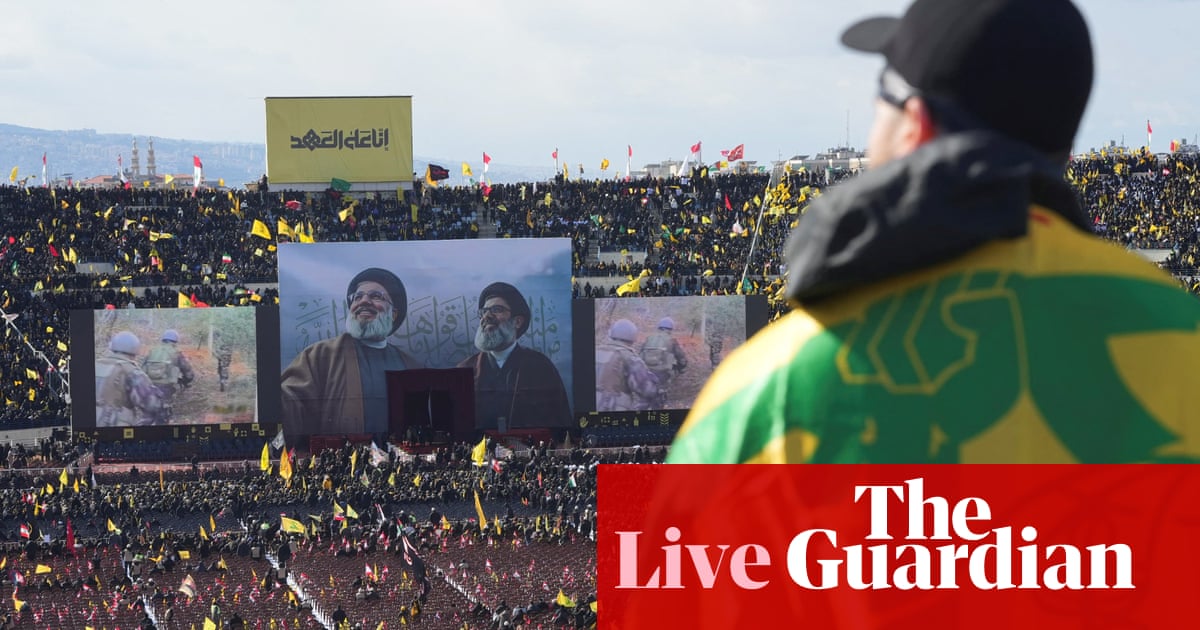The Israeli military has ordered the evacuation of new areas of northern Gaza, setting off a fresh wave of civilian displacements on Sunday as intense airstrikes continued across much of the territory.
The Israel Defense Forces said the orders for the Shujaiya neighbourhood were issued after Palestinian militants fired rockets at Israel on Saturday from a location within the densely populated district. Hamas’s armed wing said it had targeted an army base over the border.
The IDF routinely circulates warnings by social media, pamphlets and phone calls, telling people to leave areas that will be attacked. “For your safety, you must evacuate immediately to the south,” an IDF post on X said.
Families living in the targeted areas began fleeing their homes after nightfall on Saturday and into Sunday’s early hours, witnesses and Palestinian media said. Images on social media showed hundreds leaving Shujaiya on donkey carts and rickshaws, with others, including children carrying backpacks, walking.
Elsewhere in north Gaza, health officials said an Israeli drone dropped bombs on Kamal Adwan hospital, injuring its director, Hussam Abu Safiya.
In a video statement circulated by the health ministry in Gaza on Sunday, Abu Safiya said from his hospital bed: “This will not stop us from completing our humanitarian mission and we will continue to do this job at any cost.
“We are being targeted daily. They targeted me a while ago but this will not deter us.”

Israeli forces say armed militants use civilian buildings including housing blocks, hospitals and schools as shields. Hamas denies this, accusing Israeli forces of indiscriminately targeting populated areas.
Kamal Adwan is one of three hospitals in north Gaza that are barely operational. Aid agencies and local health officials say the Israeli forces have detained and expelled medical staff and prevented emergency medical, food and fuel supplies from reaching them.
Israel denies the charge, and says it has facilitated the delivery of medical and fuel supplies as well as the transfer of patients from north Gaza hospitals in collaboration with international agencies such as the World Health Organization.
The humanitarian situation in northern Gaza has been described as apocalyptic by humanitarian officials, with tens of thousands suffering acute lack of water, sanitation, food and medical supplies.
The IDF has blockaded three north Gaza towns – Jabaliya, Beit Lahiya and Beit Hanoun – since launching a major offensive early last month which it says is aimed at preventing Hamas from regrouping there.
Israeli leaders have repeatedly said that the principal aim of the military offensive in Gaza is to free hostages seized during the Hamas attacks into Israel in October last year. About 100 hostages are believed to remain in the territory, though half are thought to be dead.
On Saturday, a spokesperson for the armed wing of Hamas said a female Israeli hostage in the group’s custody had been killed in a northern area where the Israeli army had been operating.

Abu Obeida, a spokesperson for Izz ad-Din al-Qassam Brigades, said contact had been restored with the woman’s captors after a break of several weeks and it was established that the hostage was dead, but did not identify the hostage or say how or when she was killed.
“The life of another female prisoner who used to be with her remains in imminent danger,” Abu Obeida added, saying Benjamin Netanyahu’s government was to blame.
Ten female hostages, including five soldiers, were believed to be alive in custody before Abu Obeida’s statement.
The Israeli government has come under immense public pressure to agree to a deal to bring the remaining hostages home while they are still alive.
The Hostage and Missing Families Forum campaign group did not wish to comment on Saturday’s claim.
“Nothing is known other than what Hamas is saying. Our only reliable source is the Israeli army,” the group said.
An Israeli military spokesperson said it was investigating the Hamas report. “At this point, we are unable to confirm or deny it,” the spokesperson said. “Hamas continues to engage in psychological terrorism and act in a cruel manner.”
During their attack into Israel last year, Hamas-led militants killed about 1,200 people, mostly civilians, and took more than 250 hostages back to Gaza. About half of those abducted were released in a short-lived ceasefire in November.
Israel’s campaign in Gaza has killed more than 44,000 people, mostly civilians. Nearly all the enclave’s 2.3 million population have been displaced at least once, and swathes of the narrow coastal territory have been reduced to rubble.
People in northern Gaza say they fear the goal is to permanently depopulate a strip of territory as a buffer zone, which Israel denies, and say Israeli forces had blown up hundreds of houses since beginning the new offensive.
In central Gaza, health officials said at least 10 Palestinians had been killed in Israeli airstrikes on the urban refugee camps of al-Maghazi and al-Bureij since Saturday night.
The new strikes come after a bloody few days, with Palestinian medics saying Israeli military strikes across the Gaza Strip have killed at least 120 Palestinians on Friday and Saturday. Among the dead were seven members of one family whose house was hit overnight in the Zeitoun suburb of Gaza City, the health officials said. The rest were killed in separate Israeli strikes in central and southern Gaza.
With negotiations for a ceasefire continuing, hostilities have also intensified across Israel’s contested border with Lebanon. Hezbollah said on Sunday it launched attacks using missiles and drones directed at a naval base in southern Israel and a “military target” in Tel Aviv.
The Lebanon-based militant Islamist organisation said in a statement that it had “launched, for the first time, an aerial attack using a swarm of strike drones on the Ashdod naval base”. In a separate statement, it said it had also carried out an operation against a military target in Tel Aviv using “a barrage of advanced missiles and a swarm of strike drones”.

 2 months ago
47
2 months ago
47













































